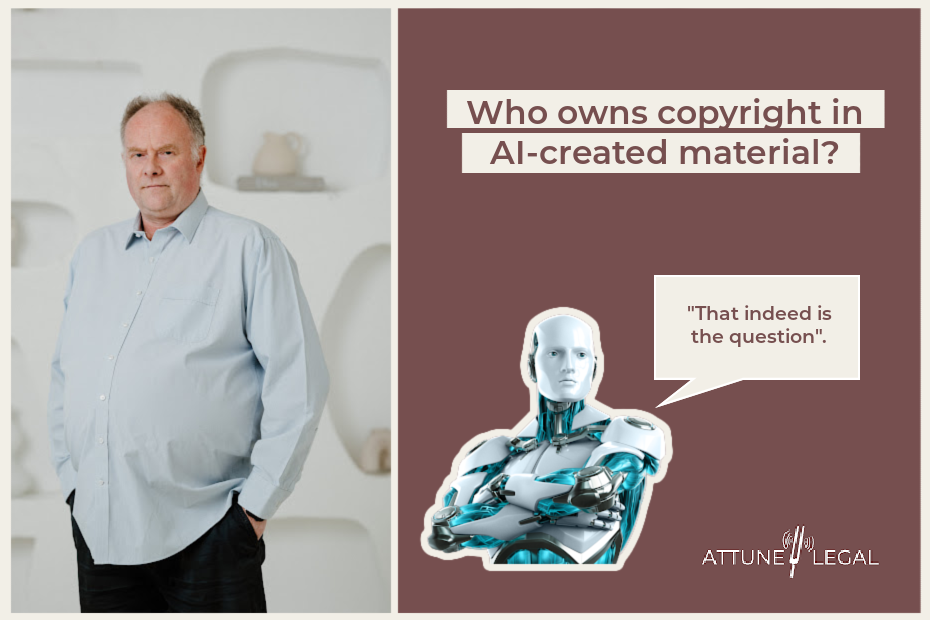Who owns Copyright in AI created material?
“That indeed is the right question”.
Is it possible for Artificial Intelligence (AI) to create a document that falls under copyright laws? This has become a pressing issue with the rise of documentation generated by Chat GPT, Google, and Microsoft’s AI platforms. While AI-created materials falling under copyright law is not accepted just yet, it does raise an important question – if an AI platform cannot own copyright for materials it has created, then who does? Attune Legal Senior Counsel David Heasley explores these questions in our latest blog.
Read on and you may find the answer…
AI Copyright in the U.S.
When asked to address this topic, the U.S. Copyright Office and courts stated that it was not possible for AI to own the copyright for materials created, and for now, only a human’s work can be copyrighted. But, what about work that relies on generative AI?
Under their recently updated manual – the Compendium of U.S. Copyright Office Practices – many pages are dedicated to explaining what it terms as “the Human Authorship Requirement.”
This requirement states that copyright law only protects “the fruits of intellectual labor” that are “founded in the creative powers of the mind.” Though some tool developers have stated that they will not claim copyright over content created by their machines, the Copyright Office has faced challenges in this issue.
In February of this year, they rejected a copyright claim for AI-generated images in a graphic novel. The writer of this graphic novel argued that she had used “a creative, iterative process”, involving various techniques like composition, selection, arrangement, cropping, and editing for each image. The government compared the use of an AI tool to that of hiring an artist.
This case hints that, as the use of such tools become more widespread, the lines between human and machine-generated work may start to blur. Just like the tools themselves, the intellectual property issues surrounding them are a work in progress and will only become more complex.
What’s happening in Australia
As for how Australia addresses this issue, the situation is similar, where it appears it is not possible for AI to own copyright. In general, a work can only be protected by copyright in Australia if a human author has contributed independent intellectual effort. This means that works generated solely by AI would not be eligible for copyright protection.
With all of this in mind, it is still unclear what level of contribution is enough for copyright protection. For instance, if a creator uses an AI tool to edit an image, their human input is likely to be sufficient. But it is uncertain if other contributions such as writing, tweaking, training the algorithm, or pre-selecting and editing the output would be considered enough for copyright protection.
However, as mentioned earlier, the ways in which the legal systems in Australia and globally address this topic are a work in progress, and it will be interesting to see how, or if, they will be able to evolve as AI becomes more prominently used in our world.
At Attune Legal, we are committed to providing our clients with the highest quality commercial law advice and support – including for matters relating to copyright and intellectual property. If you would like to learn more about how we can support both you and your business, you can get in touch with our team via the Attune Legal website here.

